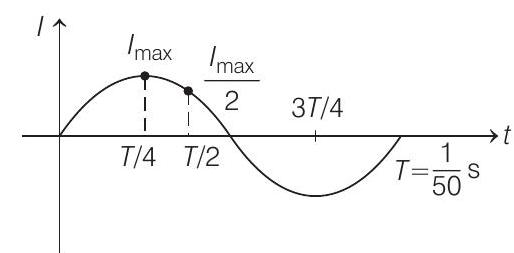Electromagnetic Induction and Alternating Current 6 Question 2
2. An alternating voltage
(a)
(b)
(c)
(d)
Show Answer
Answer:
Correct Answer: 2. (d)
Solution:
- In an

So, current reaches its maximum value at
When current is half of its maximum value, then from Eq. (i), we have
So, instantaneous time at which current is half of maximum value is
Hence, time duration in which current reaches half of its maximum value after reaching maximum value is






